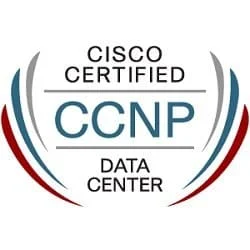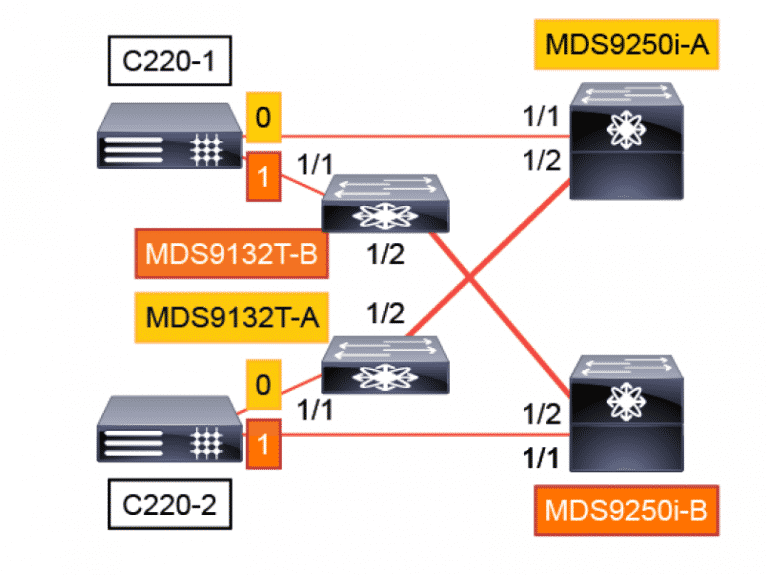Cisco Data Center

The DCCOR Implementing and Operating Cisco Data Center Core Technologies course represents the fundamental cornerstone of the Data Center technology and certification path. It prepares participants for the Core exam of the CCNP Data Center Certification (Exam 350-601). In this course, you will acquire the skills necessary to implement data center infrastructures using Cisco LAN and SAN technologies. Essential elements of automation and security in data centers will be addressed, and practical experience will be gained with the implementation, protection, operation, and maintenance of Cisco data center infrastructure, including Cisco MDS switches, Cisco Nexus switches, Cisco UCS B-Series blade servers, and Cisco UCS C-Series rack servers. The course contributes to the preparation for the CCNP Data Center Certification exam (Exam 350-601).
Course Objectives
Below is a summary of the main objectives of the DCCOR Implementing and Operating Cisco Data Center Core Technologies course.
- Understand the fundamentals of Cisco data center technologies and their role in modern IT infrastructure
- Learn how to implement Cisco LAN technologies to build a resilient and scalable data center network
- Gain proficiency in implementing Cisco SAN technologies for efficient storage networking in the data center environment.
- Acquire knowledge and skills in automation techniques to streamline data center operations and enhance efficiency.
- Develop expertise in data center security principles and best practices to protect critical assets and data.
- Master the implementation and configuration of Cisco MDS switches for storage networking solutions.
- Learn to deploy and manage Cisco Nexus switches for high-performance data center networking.
- Gain hands-on experience in configuring Cisco UCS B-Series blade servers for compute-intensive workloads.
- Understand the architecture and operation of Cisco UCS C-Series rack servers for versatile data center deployments.
- Prepare effectively for the CCNP Data Center Certification exam (Exam 350-601) by mastering all core concepts and practical skills covered in the course.
Course Certification
Exam 350-601 DCCOR Implementing Cisco Data Center Core Technologies; Exam Part of Certifications: CCNP Data Center, CCIE Data Center. The CCNP Data Center certification program prepares for professional roles in today’s Data Center technologies. CCNP Data Center now includes elements of automation and programmability for maximum scalability of modern data center infrastructures. In particular, the 350-601 DCCOR exam tests skills on topics such as implementing core data center technologies, Data Center network, Data Center compute, Data Center storage, Data Center automation, Data Center security.
Course Outline
- Implementing Data Center Switching Protocols*
- Spanning Tree Protocol
- Port Channels Overview
- Virtual Port Channels Overview
- Implementing First-Hop Redundancy Protocols*
- Hot Standby Router Protocol (HSRP) Overview
- Virtual Router Redundancy Protocol (VRRP) Overview
- First Hop Redundancy Protocol (FHRP) for IPv6
- Implementing Routing in Data Center*
- Open Shortest Path First (OSPF) v2 and Open Settlement Protocol (OSP) v3
- Border Gateway Protocol
- Implementing Multicast in Data Center*
- IP Multicast in Data Center Networks
- Internet Group Management Protocol (IGMP) and Multicast Listener Discovery (MLD)
- Multicast Distribution Trees and Routing Protocols
- IP Multicast on Cisco Nexus Switches
- Implementing Data Center Overlay Protocols
- Cisco Overlay Transport Virtualization
- Virtual Extensible LAN
- Implementing Network Infrastructure Security*
- User Accounts and Role Based Access Control (RBAC)
- Authentication, Authorization, and Accounting (AAA) and SSH on Cisco NX-OS
- Keychain Authentication
- First Hop Security
- Media Access Control Security
- Control Plane Policing
- Describing Cisco Application-Centric Infrastructure
- Cisco ACI Overview, Initialization, and Discovery
- Cisco ACI Management
- Cisco ACI Fabric Access Policies
- Describing Cisco ACI Building Blocks and VMM Domain Integration
- Tenant-Based Components
- Cisco ACI Endpoints and Endpoint Groups (EPG)
- Controlling Traffic Flow with Contracts
- Virtual Switches and Cisco ACI VMM Domains
- VMM Domain EPG Association
- Cisco ACI Integration with Hypervisor Solutions
- Describing Packet Flow in Data Center Network*
- Data Center Traffic Flows
- Packet Flow in Cisco Nexus Switches
- Packet Flow in Cisco ACI Fabric
- Describing Cisco Cloud Service and Deployment Models
- Cloud Architectures
- Cloud Deployment Models
- Describing Data Center Network Infrastructure Management, Maintenance, and Operations*
- Time Synchronization
- Network Configuration Management
- Software Updates
- Network Infrastructure Monitoring
- Explaining Cisco Network Assurance Concepts*
- Need for Network Assurance
- Cisco Streaming Telemetry Overview
- Implementing Fibre Channel Fabric
- Fibre Channel Basics
- Virtual Storage Area Network (VSAN) Overview
- SAN Port Channels Overview
- Fibre Channel Domain Configuration Process
- Implementing Storage Infrastructure Services
- Distributed Device Aliases
- Zoning
- N-Port Identifier Virtualization (NPIV) and N-Port Virtualization (NPV)
- Fibre Channel over IP
- Network Access Server (NAS) Concepts
- Storage Area Network (SAN) Design Options
- Implementing FCoE Unified Fabric
- Fibre Channel over Ethernet
- Describing FCoE
- FCoE Topology Options
- FCoE Implementation
- Implementing Storage Infrastructure Security*
- User Accounts and RBAC
- Authentication, Authorization, and Accounting
- Fibre Channel Port Security and Fabric Binding
- Describing Data Center Storage Infrastructure Maintenance and Operations*
- Time Synchronization
- Software Installation and Upgrade
- Storage Infrastructure Monitoring
- Describing Cisco UCS Server Form Factors*
- Cisco UCS B-Series Blade Servers
- Cisco UCS C-Series Rack Servers
- Implementing Cisco Unified Computing Network Connectivity
- Cisco UCS Fabric Interconnect
- Cisco UCS B-Series Connectivity
- Cisco UCS C-Series Integration
- Implementing Cisco Unified Computing Server Abstraction
- Identity Abstraction
- Service Profile Templates
- Implementing Cisco Unified Computing SAN Connectivity
- iSCSI Overview
- Fibre Channel Overview
- Implement FCoE
- Implementing Unified Computing Security
- User Accounts and RBAC
- Options for Authentication
- Key Management
- Introducing Cisco HyperFlex Systems*
- Hyperconverged and Integrated Systems Overview
- Cisco HyperFlex Solution
- Cisco HyperFlex Scalability and Robustness
- Describing Data Center Unified Computing Management, Maintenance, and Operations*
- Compute Configuration Management
- Software Updates
- Infrastructure Monitoring
- Cisco Intersight™
- Implementing Cisco Data Center Automation and Scripting Tools*
- Cisco NX-OS Programmability
- Scheduler Overview
- Cisco Embedded Event Manager Overview
- Bash Shell and Guest Shell for Cisco NX-OS
- Cisco Nexus API
- Describing Cisco Integration with Automation and Orchestration Software Platforms
- Cisco and Ansible Integration Overview
- Cisco and Puppet Integration Overview
- Python in Cisco NX-OS and Cisco UCS
- Describing Cisco Data Center Automation and Orchestration Technologies*
- Power On Auto Provisioning
- Cisco Data Center Network Manager Overview
- Cisco UCS Director Fundamentals
- Cisco UCS PowerTool
Laboratory Activities
- Configure Overlay Transport Visualization (OTV)
- Configure Virtual Extensible LAN (VXLAN)
- Explore the Cisco ACI Fabric
- Implement Cisco ACI Access Policies and Out-of-Band Management
- Implement Cisco ACI Tenant Policies
- Integrate Cisco ACI with VMware
- Configure Fibre Channel
- Configure Device Aliases
- Configure Zoning
- Configure NPV
- Configure FCoE
- Provision Cisco UCS Fabric Interconnect Cluster
- Configure Server and Uplink Ports
- Configure VLANs
- Configure a Cisco UCS Server Profile Using Hardware Identities
- Configure Basic Identity Pools
- Configure a Cisco UCS Service Profile Using Pools
- Configure an Internet Small Computer Systems Interface (iSCSI) Service Profile
- Configure Cisco UCS Manager to Authenticate Users with Microsoft Active Directory
- Program a Cisco Nexus Switch with Python
Course Mode
Instructor-Led Remote Live Classroom Training;
Trainers
The teachers are CISCO accredited instructors and certified in other IT technologies, with years of practical experience in the sector and in training
Lab Topology
For all types of delivery, the student can access the real Cisco equipment and systems present in our laboratories or directly at the Cisco data centers remotely 24 hours a day . Each participant has access to implement the various configurations thus having practical and immediate feedback on the theory addressed. Here are some network topologies from the available Cisco laboratories:

Course Details
Course Prerequisites
We recommend participation in the Cisco CCNA Course and the VMware VCP-DCV Course .
Course Duration
Intensive duration 5 days
Course Frequency
Course Duration: 5 days (9.00 to 17.00) - Ask for other types of attendance.
Course Date
- Cisco DCCOR Course (Intensive Formula) – On request – 9:00 – 17:00
Steps to Enroll
Registration takes place by asking to be contacted from the following link, or by contacting the office at the international number +355 45 301 313 or by sending a request to the email info@hadartraining.com


